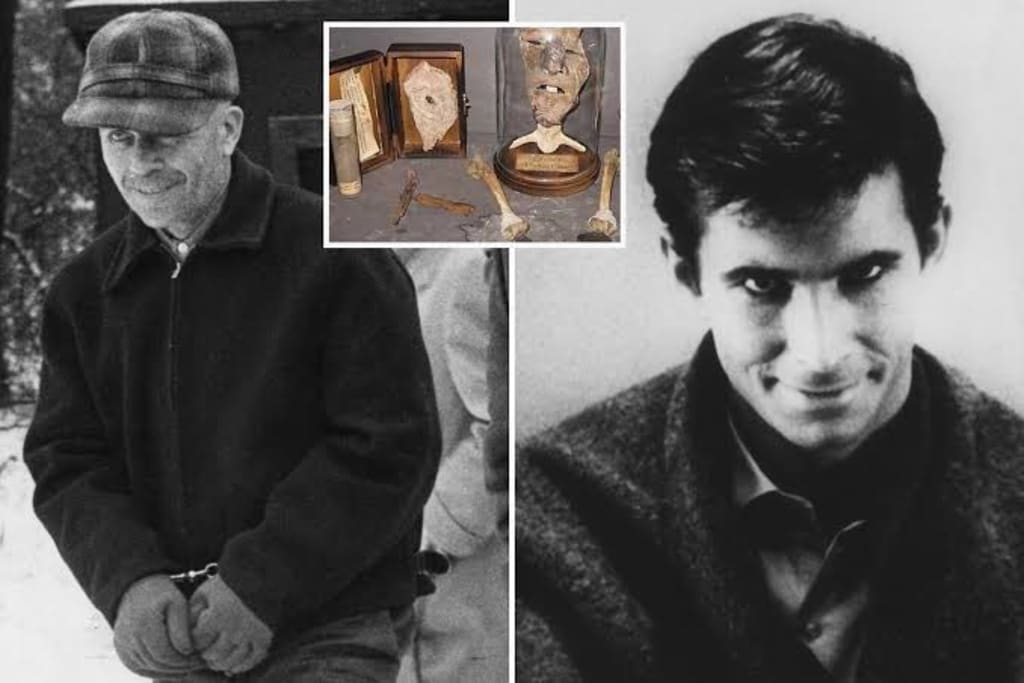The Disturbing Tale of Ed Gein
Ed Gein, a disturbed American murderer and body snatcher, shocked the world with his gruesome acts and macabre obsessions. Born in 1906, his troubled upbringing and morbid fixations culminated in a house of horrors in 1957

Ed Gein was a notorious American murderer and body snatcher who gained infamy for his gruesome actions and macabre obsessions. Born on August 27 1906 in La Crosse, Wisconsin, Gein's twisted psyche and horrific deeds would later inspire a number of fictional villains in popular culture. Gein's early life was marked by a troubled family dynamic. His father was an alcoholic, and his mother, whom he had an unusually close and unhealthy relationship with, often preached about the evils of women and sexuality. After his father's death in 1940, Gein's mental state deteriorated further, and he became increasingly isolated.
In 1957 the bizarre and sinister nature of Geins activities was exposed when police arrived at his secluded farmhouse. They were investigating the disappearance of a local hardware store owner, Bernice Worden. Inside Gein's home, they discovered a scene of horror that would shock the nation. Human body parts and artifacts made from human remains were scattered throughout the house. These included furniture upholstered in human skin, masks crafted from human faces, and even a "woman suit" Gein had created in an attempt to become his mother.
Gein's penchant for grave robbing also came to light. He admitted to exhuming bodies from local cemeteries and using parts of them for his disturbing creations. In his twisted mind, he aimed to transform himself into his mother, whom he idealized as a pure and virtuous figure.
Arrested and charged with murder and grave robbing, Gein's case captivated the public's imagination. His story influenced the creation of iconic fictional characters in books, movies, and television shows, most notably Norman Bates from Alfred Hitchcock's "Psycho" and Leatherface from "The Texas Chainsaw Massacre." Gein's gruesome actions shed light on the darker aspects of the human psyche and the potential for extreme aberrations.
Found unfit to stand trial due to his mental state, Gein was sent to a mental institution. He was diagnosed with schizophrenia and deemed legally insane. In 1968, after a decade of confinement, he was declared fit for trial. However, he was only tried for one murder—the death of Bernice Worden—since it was deemed that he may not have been responsible for the other crimes due to his mental state.
Gein was found guilty but legally insane, leading to his return to psychiatric care. He spent the rest of his life in a mental hospital, where he died on July 26, 1984, due to respiratory and heart failure.
Ed Gein's case remains a chilling example of the capacity for human depravity. His twisted fixation on his mother, coupled with his gruesome acts, has left an indelible mark on true crime lore and popular culture. The legacy of his crimes continues to be explored and sensationalized in books, movies, and documentaries, reflecting society's fascination with the macabre and the depths of human darkness. In Ending, Ed Gein's life and actions were marked by a combination of psychological turmoil, distorted familial relationships, and a descent into horrifying criminality. His story serves as a stark reminder of the complex interplay between nature and nurture, as well as the potential for individuals to become consumed by their darkest impulses. While Gein himself is no longer alive, his legacy lives on through the characters and stories he inadvertently inspired, offering a cautionary tale about the fragility of the human mind.
About the Creator
Enjoyed the story? Support the Creator.
Subscribe for free to receive all their stories in your feed. You could also pledge your support or give them a one-off tip, letting them know you appreciate their work.





Comments (1)
Good work! I've written about Gein a number of times in different books. Here's an article on Gein I wrote for Vocal from five years ago. "There Once Was a Farmer Named Ed..." https://vocal.media/criminal/there-once-was-a-farmer-named-ed